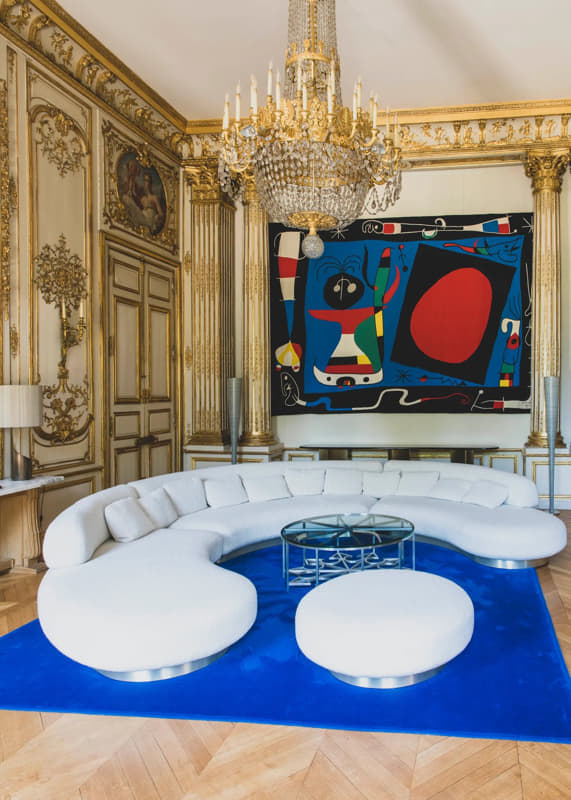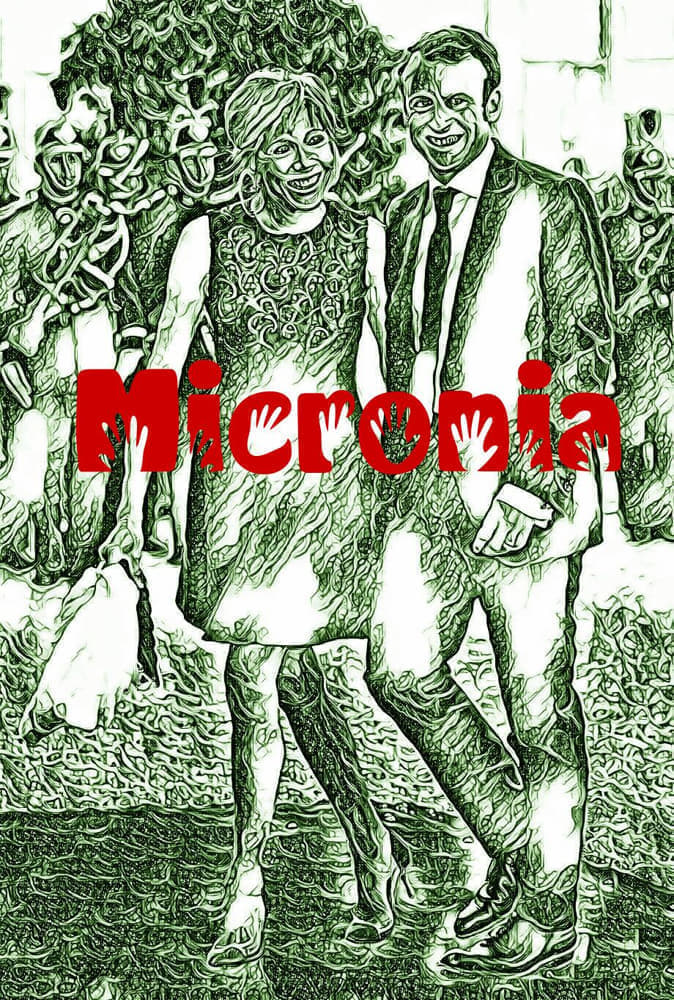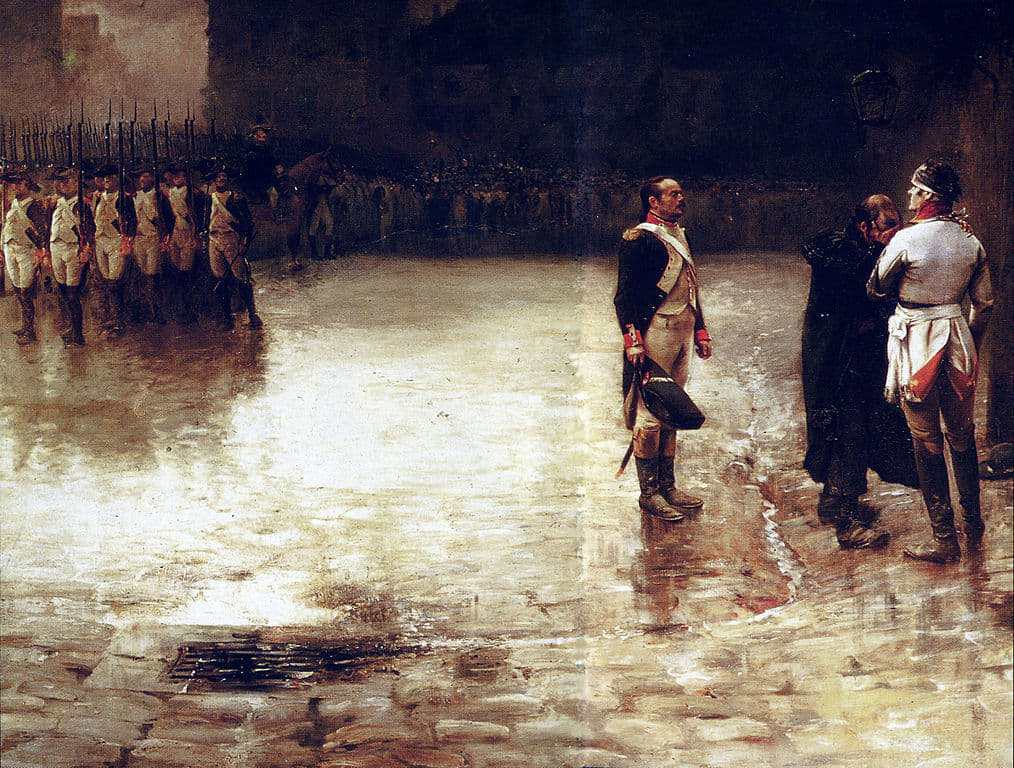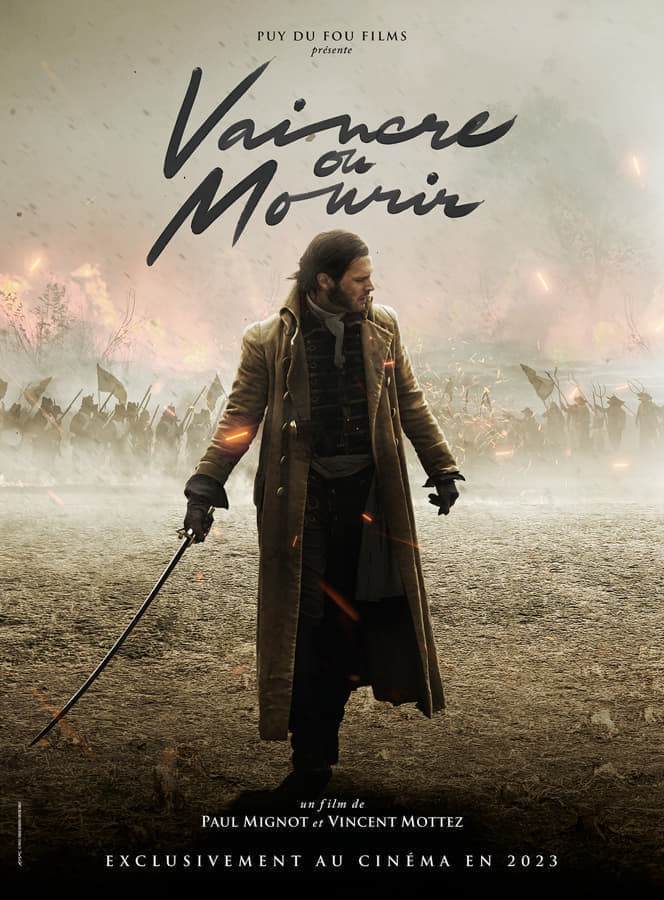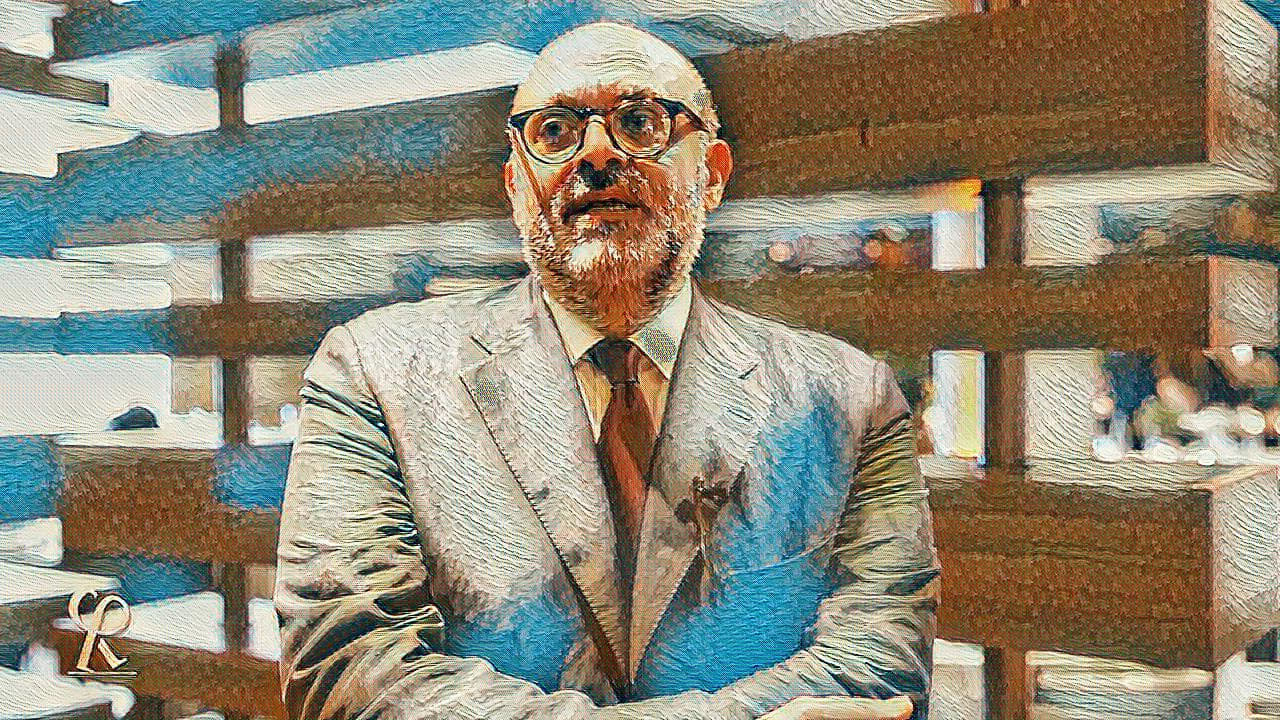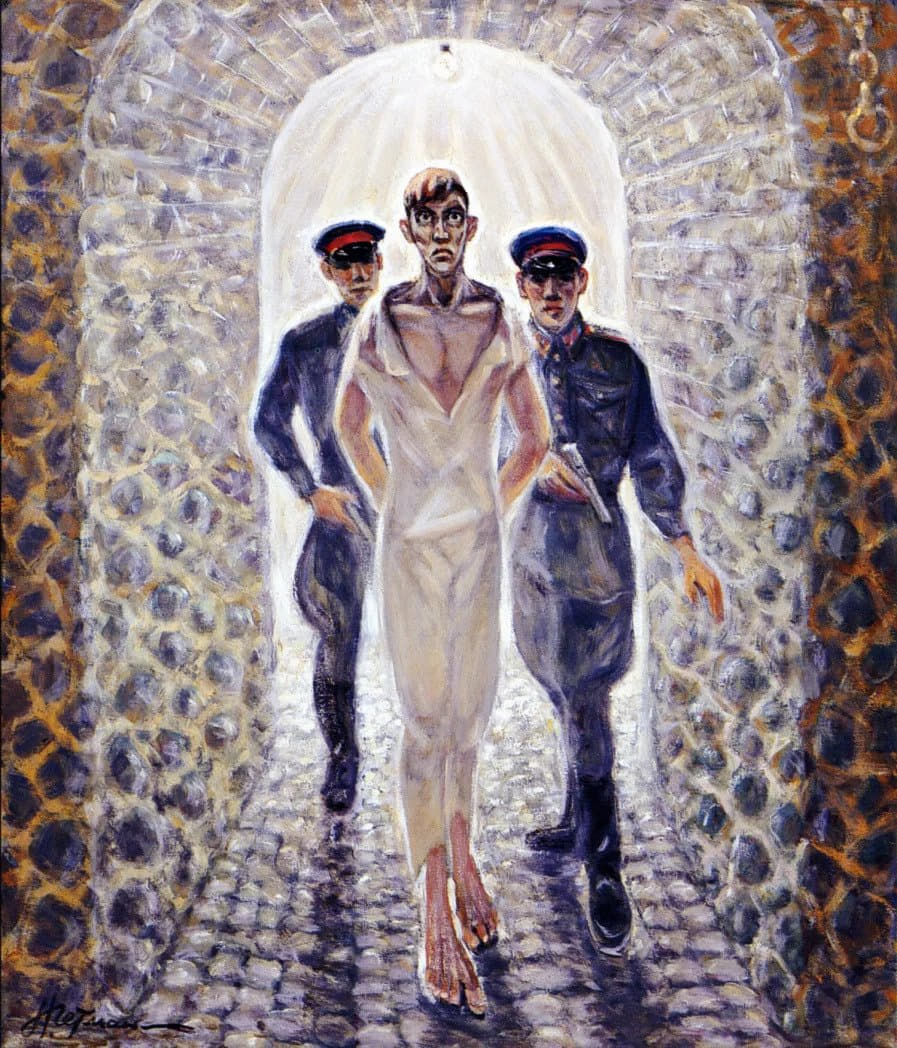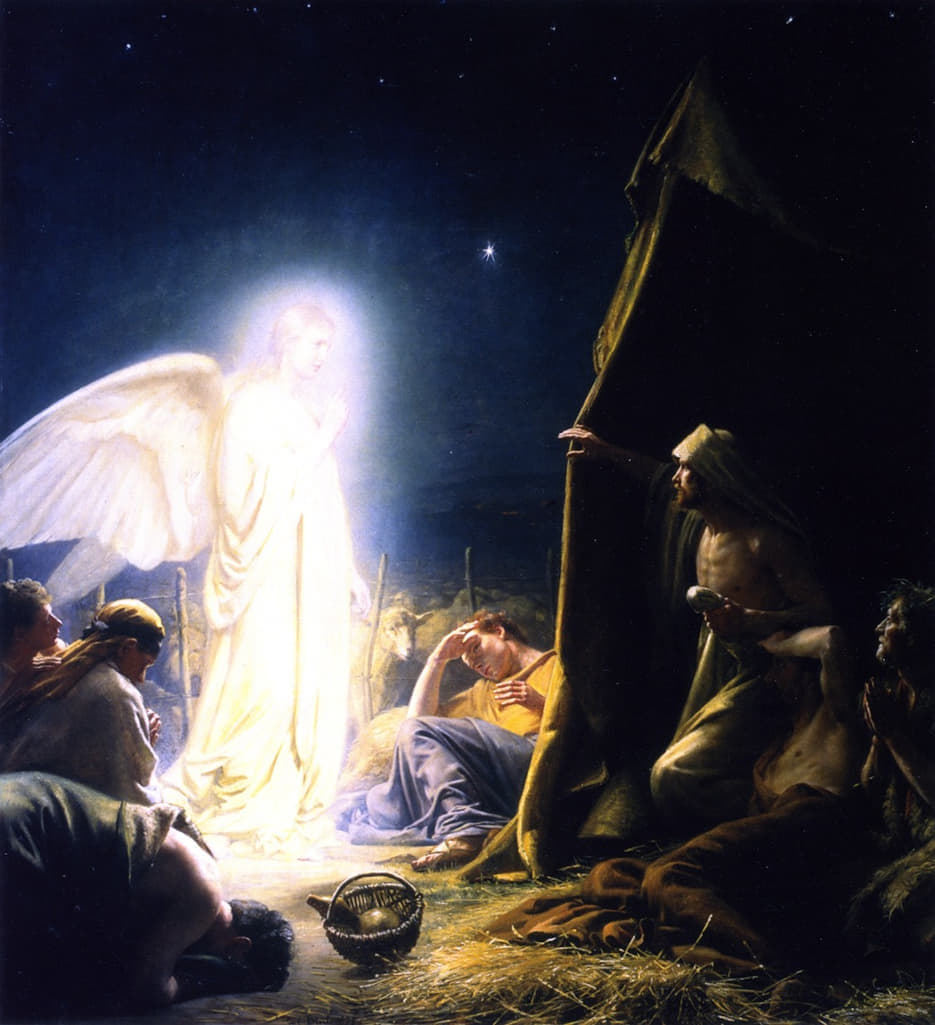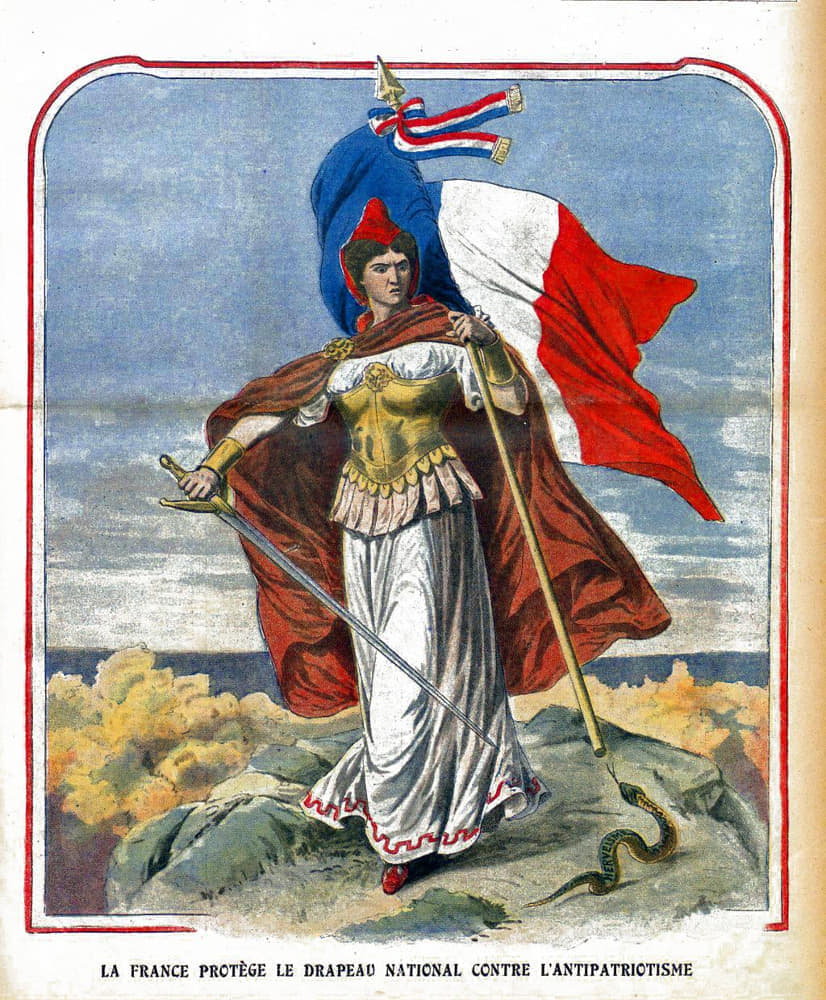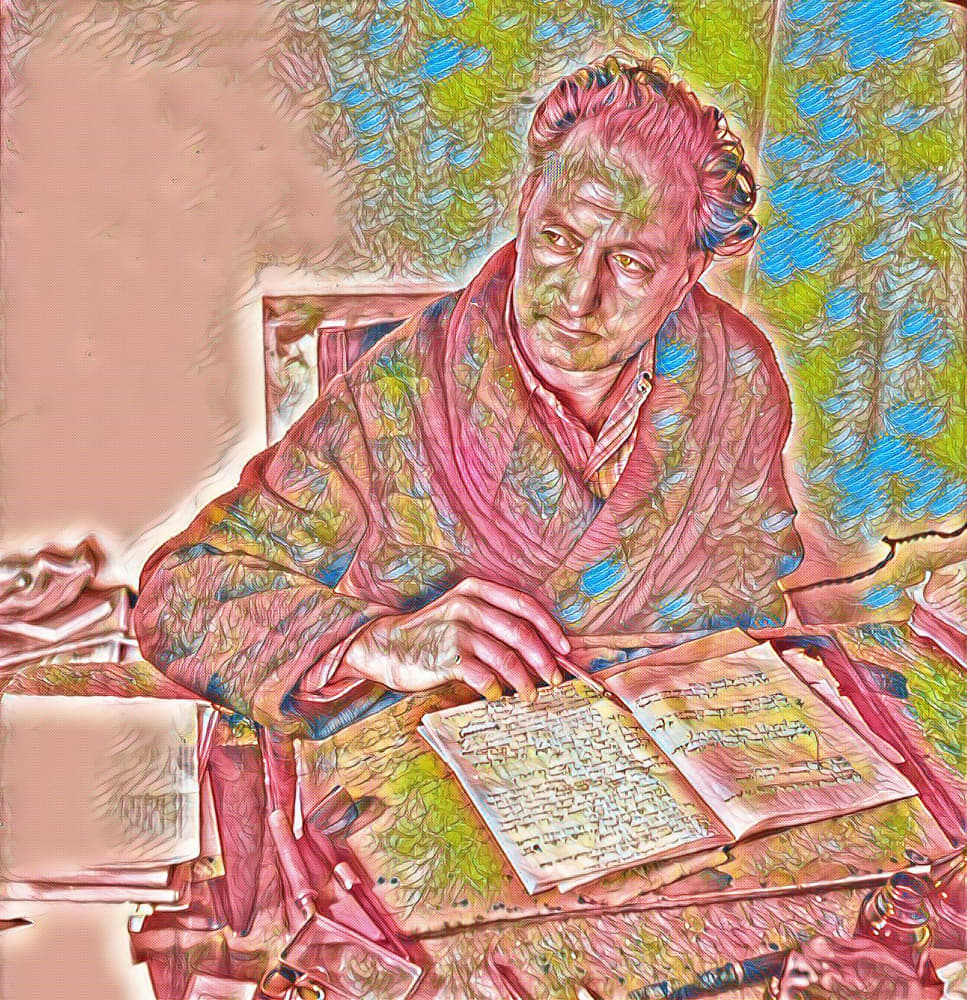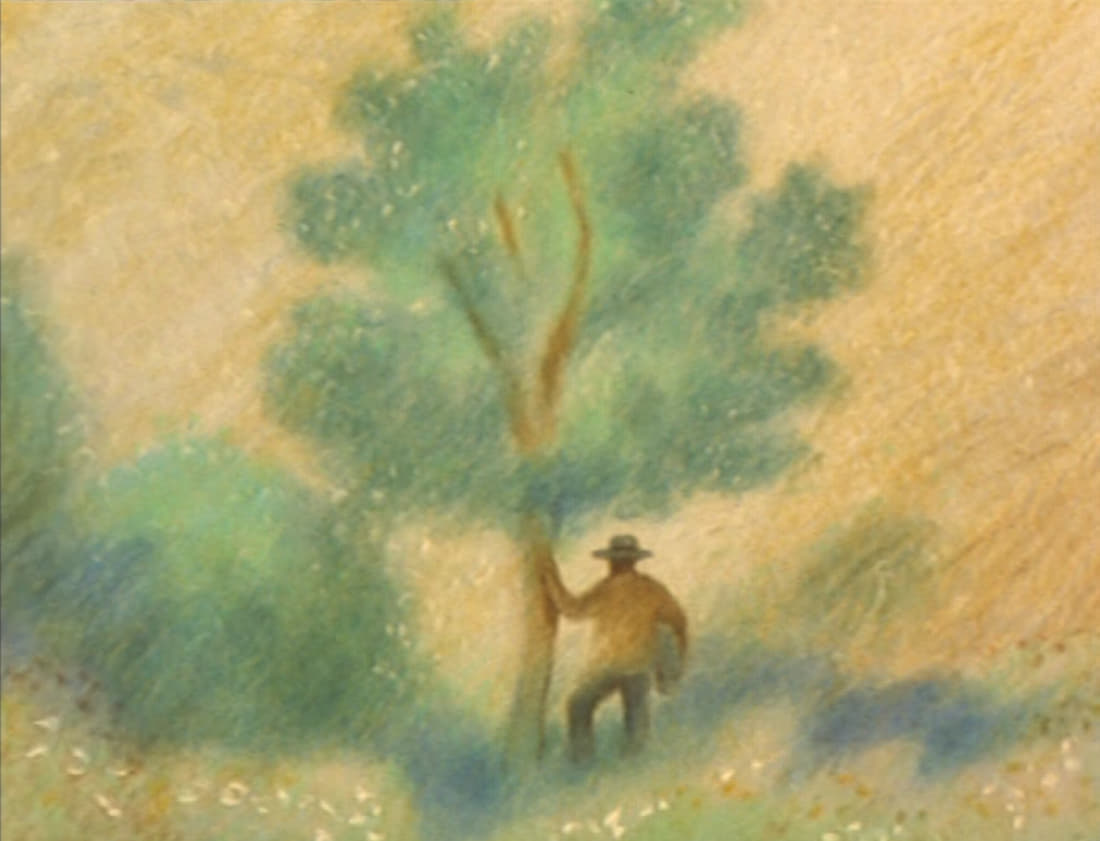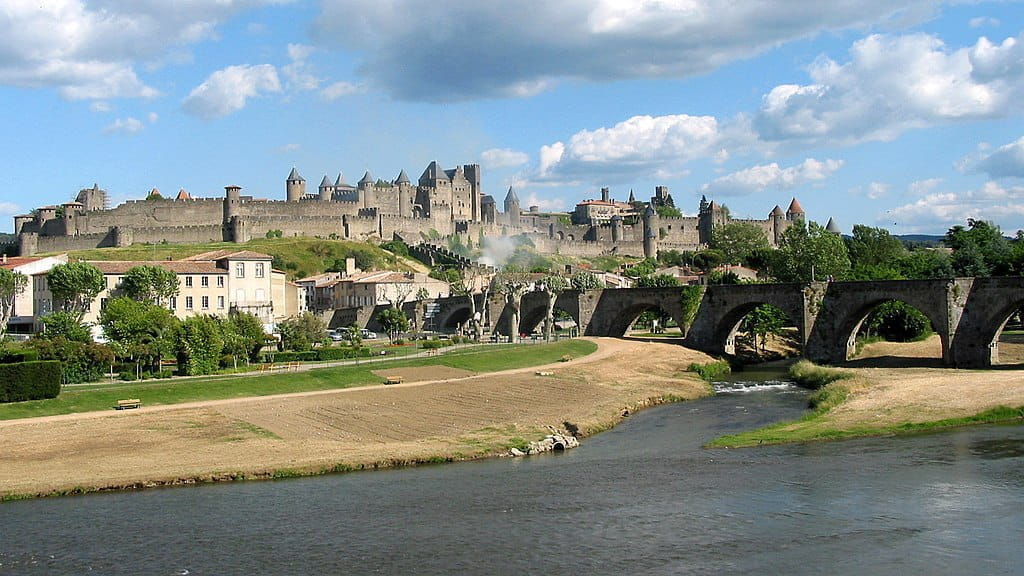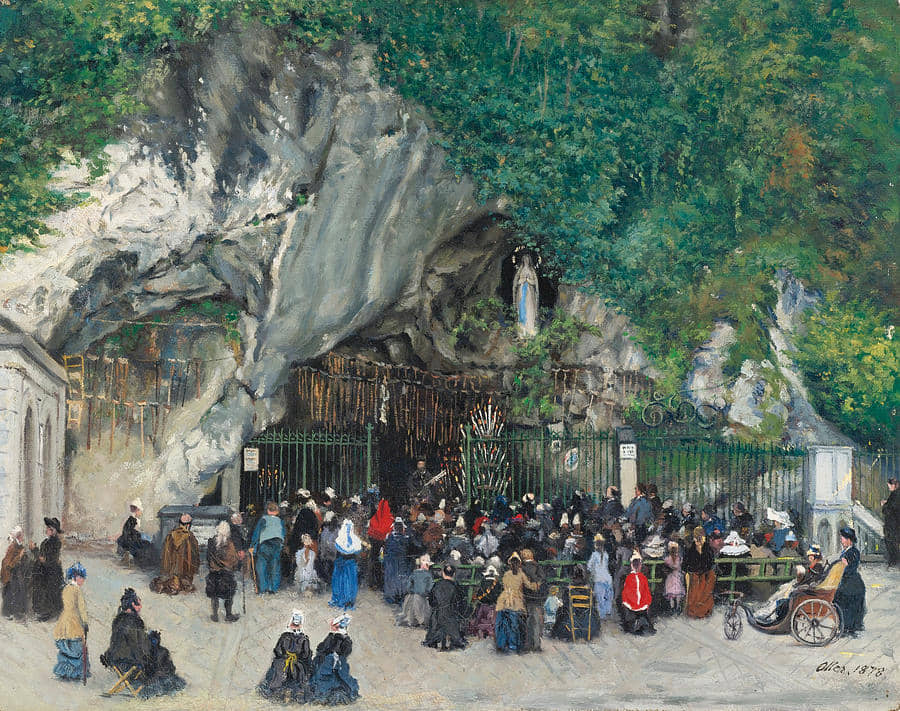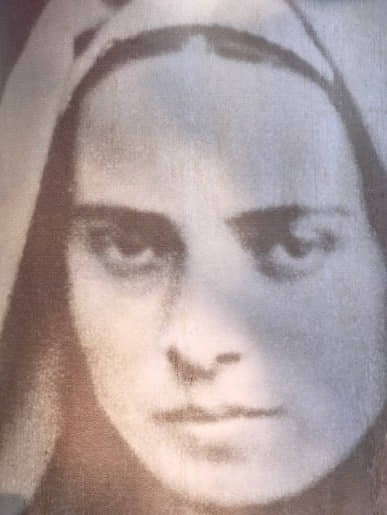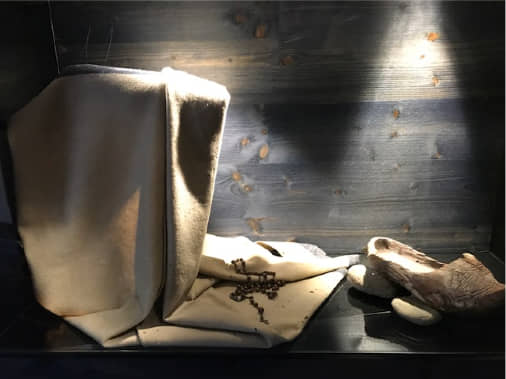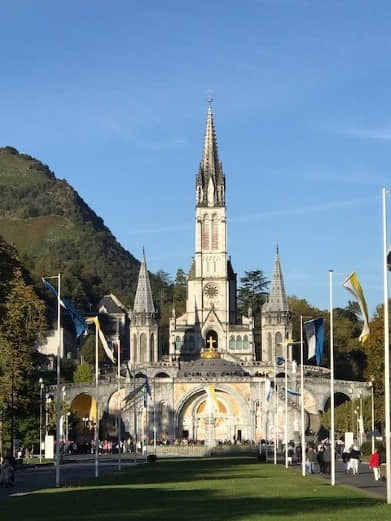Let’s start by clearing up a misunderstanding: Giono is not a Provençal writer. He was certainly born and died in Manosque, and most of his stories do indeed take place somewhere between the plateau of Valensole and the mountain of Lure. But it is an invented, romanticized Provence. The Reader’s Digest, having first selected for its contest on “the most extraordinary character I have met” the manuscript of The Man Who Planted Trees—which remains today Giono’s most world-famous short story—finally rejected it for lack of proof of the existence of its main character, Elzéard Bouffier. They were expecting a documentary filmmaker, but instead they got a writer.
A writer, therefore, not an author of greeting cards. Giono’s lavender was gray. “These blues, these ochres, these reds, these greens that we see in the front of the stationery shops, if you like them, stay in front of the stationery shops. Here, what you get is gray.” The tourists who rushed to the beaches of the French Riviera to roast their flesh had no business stopping in these arid lands, where one hates the sun and gets drunk in the shade. Nor does Giono recognize himself in the Provence of regionalist authors, in Daudet’s Tartarin, Pagnol’s César, or the bucolic songs of Mistral and the Félibres—an attempt at best naive, at worst artificial and hypocritical, to promote an outdated folklore foreign to the real people. “I do not know Provence,” Giono the Manosquin said with irony. “When I hear about this country, I promise myself never to set foot there. According to what I am told, it is made of white cardboard, with decorations pasted on, where tenors and baritones coo, while walking their bellies girded by red belts.” Giono was obviously a writer deeply rooted in his region, but what he discovered there, the terrible beauty of the world, the violence and the tragedy of human passions, is universal. His Provence, in fact, is the one described “as well by Stendhal as by Shakespeare, or by Cervantes, by Dostoyevsky.”
The Peasantry against the Modern World
If Giono belongs to a country, it is the country of the peasantry. Like Ramuz in Switzerland, he knew how to tell the greatness and the cruelties of the life of the countryside. Like Céline with the urban proletarians, and better than the intellectual elucubrations of the Félibriges, Giono knew how to translate into writing the oral language of the land. “It comes from the fact that we have no education; what do you want us to do about it?” explains old Amédée in Un de Baumugnes [A Man of Baumugnes—translated into English as Lovers are Never Losers]. “This here piece of paper, it said more to me than all the others doing acrobatics around a clarinet.”
It is with his feet firmly planted in the earth, in what he calls “the peasant civilization,” that Giono observes and condemns the modern world. Les vraies richesses (The Real Wealth—not yet translated)—an essay dedicated to his friends from Contadour, with whom he formed a small peasant and poetic community from 1935 to 1939—opens on the misery of the modern city-dweller, cut off from the life-giving sources of his being, exhausted, emaciated by meaningless work. “In this city where men are piled up as if one had raked an anthill, what strikes me, seizes me and covers me with mortal cold, is emptiness.” Modern man accumulates futile pleasures and goods, of which he immediately tires, forgetting the real foods, the real wealth, simple and eternal. Like this bread, which a village woman has decided to make herself, in the old-fashioned way. “And now I see on my table bread made by the housewife and I think it is very serious. Of a beautiful gravity, sweet and full of joy… Because Mrs. Bertrand took yeast, flour, water, and made bread, not to sell it, but to eat it.” The greatness and freedom of the peasant comes precisely from this independence, from the fact that he alone is capable of feeding himself; from the fact that he participates in the gush of life, in the perpetual recreation of the world.
Modern alienation consists in breaking this direct link between man and the land, by interposing money, “the greatest enemy of the peasant,” which ends up starving those who feed the world. In his film Crésus (Croesus), the only one he directed entirely, Giono tells the story of a shepherd, Jules, played by Fernandel, who discovers a treasure. Not knowing what to do with the loot, he begins to distribute it to the villagers, who in return cower over their manna, distrusting each other and most of all their benefactor. Money makes them miserable, unable to take advantage of “the real wealth,” of nature that is freely available to all. One of the characters, not knowing what to do with his money either, sets out to build a bridge, even if it is useless. Technology, as much as money, separates man from the earth. Under the pretext of less strenuous labor, it degrades the soil, extinguishes the joy of work, and transforms the peasant into an agricultural worker, enslaved to the market. This is what Bobi tries to make the communist farmer understand in Que ma joie demeure (That My Joy may Remain—translated as, Joy of Man’s Desiring): “This fragrant air, this morning, it is your horse, your dog, your goat, and the little crazy snake that drink it all in and enjoy it. And you, will you remain shut out all the time from yourself, with your miserable tools for torturing and scraping, your files, your saws, your planers and your spades, your iron jaws, your iron teeth, your firebreaks with which you can never stop fires?” Through technology, we must renounce the modern and Cartesian ambition to make ourselves masters and possessors of nature. “The important thing,” adds Bobi, “is to become again the fair-haired vagabonds of the world. I am against the power of men.” Humanity will only find joy again by abandoning its will to dominate, by reconnecting with nature. “There will be happiness for you only on the day when the big trees will crest the streets, when the weight of the lianas will make the obelisk collapse and the Eiffel Tower bend” [“Destruction de Paris,” in Solitude de la pitié]
Giono was all the more severe with modernity as he personally experienced its worst horrors. Having enlisted in the First World War, he returned, like so many others, deeply affected by the Great War, and his entire work bore the scar. “I cannot forget the war,” he wrote in 1934, “I bear its mark.” In Le grand troupeau (The Great Herd, translated as, To the Slaughterhouse), he recounts the comrades who fell at the front without understanding anything, physically and internally destroyed: “No more mouth, no more nose, no more cheeks, no more eyes—crushed flesh and spikes of small white bones…. The hand of the dead man clutched a clod of earth with a small blade of grass.” And he recounts the anguish and loneliness of the home-front, of fathers waiting for their sons, of wives pining for their husbands: “[The bed] was so used to Joseph that his place was still formed in it, and in the white of the sheets, there was as if the shadow of a man lying there.” Giono’s radical—and controversial—pacifist commitment during the Second World War must be understood in the light of this trauma, and the global rejection of modernity that he drew from it. He had understood, indeed, that it is the same system, namely the State (whether capitalist or communist), which seizes man as a raw material to be corvéed at will, which exploits the bodies in the factory and which sends them then to be massacred; and that the only way to escape from it is to refuse entirely, from the beginning, this seizure, by remaining faithful to the earth.
[Refusing to get involved in a war that he felt did not concern him, Giono was not afraid to publish in the collaborationist newspaper La Gerbe, nor to give a report to the Nazi newspaper Signal. He tended to lump together the crimes of the Occupiers, the bombings of the Allies, and the attacks of the Resistance. Declining all patriotism, all martial heroism, he preferred “to live lying down than to die standing up,” to be “a living German rather than a dead Frenchman.” Though stubbornly non-aligned, he also never rallied to a single point of Nazi ideology either. And during the war, he hid several refugees, including Jews, in his home, without any political claim, simply out of humanity. All this earned him, in any case, a few months in prison after the Liberation.]
An Impossible Pantheism
If we were to leave it at that—denunciation of money, technology, war, return to nature—Giono would not be very original, and would almost pass for a Zadist before his time, an ecological militant full of good feelings, inciting children to plant trees. This is not the case, of course. First of all, because he knew what he was talking about, because his peasant civilization was not an intellectual fantasy or a literary fiction, but his daily reality. He often mocked the skeptical Parisians who, from their salons, reproached him for the imaginary peasants that he met every day. His essays, moreover, never took the form of a demonstrative treatise, but rather of a narrative, of a collection of anecdotes—they are based less on arguments than on testimonies. One will not find in his work extensive developments on the Gestell or the self-valorization of capital—although he talks about it in his own way, and arrives globally at the same conclusions—but instead one hears the voice of a farmer disappointed by his tractor, which is too costly in gasoline: “I took back the horse. Of course, he eats every day. But I don’t buy what he eats, I produce it. It’s a freedom. And then, it is a horse.” And Giono comments: “In these last words, there was all the secret of the peasant” [Le poids du ciel]. Are these testimonies authentic? Embellished? It is true that Giono was a storyteller, that he liked to maintain the blur between reality and his story, but what does it matter, after all, if it gives us hope? “I have sometimes been reproached for only painting men with eagle wings, lion claws, sort of legendary giants. I reproach you for painting men without wings, without claws and very small. You reproach me with excessiveness, I reproach you with blindness. I see better than you the becoming. And, even if I see it badly, and even if I am wrong, I have at least the merit of trusting in the greatness of men, of pushing them to the mystical contract that binds them to the world, of launching them towards the epic life with what you call ‘their only poor little arms,’ but on which the heroic wind will make the feathers of the eagle grow” [Les vraies richesses].
[We will come back later on to this theme of the tale, of the imagination, of the narrative lie. But let us emphasize this point: Giono had all his life consciously mixed reality and imagination, a bit like Balzac asking for his fictitious doctor Bianchon on his deathbed. His daughter related, among other anecdotes, that when he asked her about mountains in the distance, he immediately answered that the castle of the Baroness of Quelte was there, before specifying, in front of the astonishment of his child, that he had just invented it. He was more than seventy years old, and was creating his last published novel. He was going to slip into this book a “please insert notice,” to the effect that by referring to a certain Mrs. Dieulafoy, there never was an iris in Susa. But it turns out that this archaeologist, whose work Giono had in his library, had precisely reported the presence of irises in Susa. One might as well say that Giono was not afraid to lie, to cheat, to embellish the truth, or simply to play with it.]
Giono’s first novel, Naissance de l’Odyssée [Birth of the Odyssey—not yet translated] (which was initially rejected and was not published until after his first successes), heralded his conception of literature: the cunning Odysseus lies to his own wife, but his lie is honorable since it maintains the illusion of greatness, since one likes “better to take pleasure in a lie than to yawn at ugly truths.”
What distinguishes Giono from technocritical philosophers, and of course from small-time ecologists, is simply that he is a writer. The return to nature is not a concept for him, but a style, and therefore a feeling. If you open any of his books, at least before 1939, on any page, you will see, hear, and feel pantheism jumping out at you, overflowing with tastes, smells, colors and materials. One character is enormous and robust like a “piece of wood that walks,” another has eyes “like mint leaves” [Regain]. Old Janet, “straight, hard as a laurel trunk,” “snakes in his fingers,” mocks his incredulous neighbors: “You think the house is a house and nothing more? The hill, a hill and nothing more? I didn’t think you were that stupid” [Colline], And Giono, with each line, makes us see more than a house, more than a hill, more than a silhouette, discovering the deep unity, the indefinite resonance of beings, dipping his brush “in this thick mud of life that is the mixture of men, beasts, trees and stone” [Le serpent d’étoiles—The Serpent of Stars].
This pantheism irrigates notably all the Gionian painting of love. The desire, purged of its moral prohibitions as much as of its pretended liberations, washed of its unhealthy fantasies of all kinds, appears there as the simple budding of spring, the attraction, banal but unsurpassable, of the male and the female, for the renewal of the life. “I knew by intuition,” we read in his novelized autobiography Jean le Bleu (Blue Boy), “that these gestures were beautiful and natural and that nothing in these gestures was forbidden, that all the roundness of the world, from my feet to the stars, and in the beyond of the stars, all the world, all these fruits of moons and suns were carried in the branches of knotted arms, joined mouths and assembled bellies. I understood all the simple beauty of it all, and that it was right, and that it was good.” Giono neither condemns nor exalts sexuality; he speaks of it little, and always with modesty, as of a thing at once simple and sacred, which one veils, not by repugnance, but to spare the intimate joy of the lovers. The breeze awakens the flesh of Arsule, “all the networks of her blood started to sing like the net of the brooks and the rivers of the earth.” She feels Panturle’s warm chest under her cheek, while he embraces her. “She fell into this arm like a sheaf of hay and lay down in the grass. It was, first, a sharp gust of wind and a cry of that wind deep in the wood; the moan of heaven, then an owl cried down into the grass. A wild turtle-dove began to sing. Here is the dawn” [Regain].
But Giono was not a Sunday Buddhist, and this symbiosis between man and his environment was never total with him. Here lies all the tragedy of our condition, and all the depth of the writer. Everything is linked in the cosmos, but everything is war, too. “He kills when he cuts a tree. He kills when he mows,” we read in Colline (Hill, or Hill of Destiny) his first published novel. And if man does not kill, he will be killed. Jaume is sensitive to Janet’s universal compassion, but he is wary of it: “’Caress,’ he said. But how easy is it, if you don’t clear everything around you, if you let, just once, the steel fall from your hands, the green swarm will smother your feet and your walls,” and the boars will begin to invade the village in broad daylight. And Regain (Revival, translated as Second Harvest) that great little novel of the return to life, does not end with the praise of the hunter-gatherer, but with a kind of mastery, modest, respectful, yet firm, of man on his land. The young household relearns how to make bread, transforms the wild moor into a cultivated field, and Panturle stands, finally, not like a tree, but “like a column.”
Total union with nature is impossible. It is only a flattering dream for idle city-dwellers—and real farmers know how hostile their environment can be. But the union is also made impossible by the heart of man. Taking in an exhausted man in a mountain shelter, Sarah, in Batailles dans la montagne (Battles in the Mountain—not yet translated) gives him some goat’s milk to drink. At first he drinks unconsciously, greedily, violently but innocently, “like a kid;” then he opens his eyes, recovers his senses, and continues to drink, more gently, and more calmly, “and it was nothing other than a miserable, selfish and unhappy appetite.”
The great story of failed, unattainable pantheism, which in spite of itself heralded the failure of the Contadour, is found in Que ma joie demeure (Joy of Man’s Desiring). A strange man, with the appearance of a prophet, who calls himself Bobi, arrives one fine evening on the dreary Grémone plateau, where each farm is busy with its own business, driven by the sole pragmatic concern of producing, selling and surviving. But Bobi makes Jourdan see the sky, he shows him the constellation of Orion, and compares it to “Queen Anne’s lace.” This little metaphor seems like nothing, yet it changes everything. For it introduces poetry into the prose of everyday life, for it sprinkles beauty into the furrow of the useful. “So you saw this Queen Anne’s lace in the sky and the sky was blooming.” Bobi makes him plant hawthorn hedges, beds of daffodils, with no other fruit than their brilliance and fragrance; he tells him to spread outside the surplus grain during the winter, to make the birds come; he brings back a stag, and does, so that the voice of the forest can be heard. All useless, counterproductive things, but which reenchant an existence, which revive joy. But this joy, precisely, does not remain. “Everything failed”, he has to conclude, bitterly. And everything failed because of this love of man and woman, more complicated in the end than what Giono had first suggested. Everything failed because joy is not peaceful, because it is haunted by desire, because it is not enough to listen to the wind, to talk to the animals or to give a name to the stars, because it is necessary to seize a hand, to touch lips, and because any embrace is fleeting. “There is perhaps no joy in the world,” Bobi thinks. Giono thus leaves us facing a paradox—there is no joy elsewhere than in the world, and yet the world is not enough; man cannot fully communicate with it, cannot forget his solitude.
Generosity Against Boredom
“Who speaks of countryside Edens?… He who seeks an Eden will not find it anywhere” [Le poids du ciel]. We have been warned. Eden is definitely lost since man is man; since he is marked by sin, or subjected to the cruelty of the gods like the cursed family in Le Moulin de Pologne (The Poland Mill—translated as The Malediction). Like all great literary works, Giono’s work is a meditation on evil. A meditation that deepens and darkens over the years, becoming all the more pessimistic as the horror of war returns, once again. The pantheistic lyricism of the first novels, still tinged with optimism, carrying the hope of a “revival,” however precarious and incomplete, gradually gives way to an exploration of human passions. If the individual cannot find the simplicity and purity of the beasts, if he must let himself be eaten away by boredom or remain haunted by his insatiable desire, then it is this desire that must be probed, in all its generosity and all its violence. How to explain the repetition of massacres, other than by a natural inclination to murder, by a fascination for blood? “It would be necessary to have a man who bleeds and to show him in the fairs,” we read in the Deux cavaliers de l’orage (Two Riders of the Storm). “Blood is the most beautiful theater. You charge for it, and they will bed, borrow or steal to come watch.”
Stylistically too, the Virgilian lyricism gives way to a less pictorial, more factual, drier, sharper narration, the “chronicle” is substituted for the georgic, the meanderings of psychology for the poem of nature. There is no longer any need for words; the text seems at first to be flatter and more arid; but in its austerity, it conceals an unprecedented force. The first novel of this second period, and which remains without doubt the greatest Gionian exploration of evil, the most metaphysical, the most refined, is Un roi sans divertissement (A King without Entertainment—translated as A King Alone). In winter, murders strike a small, isolated mountain village. The priest fears an incident at Christmas mass, but Langlois, the captain in charge of the investigation, reassures him: “Nothing can happen tonight,” because the monster has had “enough entertainment.” It is not a monster, and that is what is monstrous. “It was not the devil. It was much more disturbing.” The murderer turns out to be an ordinary man, like everyone else, who could have been our neighbor, who is rightly named Mr. V. Why did he commit all these crimes? The Pascalian title tells us—to relieve boredom. To throw a little color on the white immensity, “beautiful spots of fresh blood on the virgin snow.” The murderer is only an ordinary man, a bored man; he could be our neighbor, we say, but it is worse—it could be us. Langlois has to admit that there is something “familiar” about him. Doesn’t he himself also take pleasure in tracking down wolves and slitting the throats of geese? “When it was plucked, I looked. It was always at the same place. Standing there. He was looking at the blood of the goose at his feet.”
Desire, in all its generosity and all its violence, we said earlier. If Giono probed the fascination for evil, he also described the passion to love and to offer. The dreaded Thérèse of Les Âmes fortes (Strong Souls—not yet translated) thinks only of vampirizing the love of her victims: “If I found blood somewhere to drink, maybe it would be worth my while to slip into the burrow…. Love is the purest blood that is constantly being replenished. You’re going to take it so far”—but the Numance couple are willing victims, who only think about giving and giving themselves. Let us be clear, Giono’s generosity has something Nietzschean about it. It is neither a duty nor a sacrifice—it is an overflow, a largesse, a magnificence, a form of conquest, a “ferocious and egoistic passion” [Entretiens avec Jean Amrouche et Taos Amrouche]. “’What a terrible weapon,’ said Madame Numance! ‘I am almost ashamed to use it.—‘What do you mean?—The pleasure of giving.—Ah! it is a king’s weapon,’ said Mr. Numance.”
Basically, and this is what is most disturbing, Thérèse and Mme Numance, the succubus and the saint, are not so different, and this is why the title evokes, in the plural, “strong souls.” The pleasure of taking and that of giving are like the two facets of the same devouring passion, where the other is only an instrument, a prey or an outlet, the target of a ferocity where the border between good and evil dissolves. The Artist in Les Grands Chemins (translated as The Open Road), who cheats at cards, gives by betting, takes by stealing—but the main thing is to walk on a thread: “What mattered was his skin. It was what he risked; the big move only served to risk more. No reserve, except his four or five liters of blood which, from one minute to the next, can flow into the sawdust…. Cheating forced him to bet the essential. He was a person in full.” He is, if one can say so, and despite his egoism, a generous, expensive, prodigal thief. His only rule is to play “without a ceiling.” He does not play to get rich, any more than Therese cheats the Numance couple for their money. It’s not even about dominating. It is not only about fighting, about winning, but about having risked his skin. In the margin of a photograph, which served as model for Thérèse, Giono described her “chewing and re-chewing her will to power.” But the formula would apply just as much to the benefactress. Doesn’t she see her ruin as a triumph? She has “a fulfilled face.” “’Now that she has what she wants,’ observed Firmin, Thérèse’s husband, ‘she doesn’t even look at you anymore.’” And the Narrator, the companion of the Artist, who gives him everything, even to death, also does the same, in a sense, by play, by a game perhaps even more subtle. To “cheat against oneself,” he says to himself, one overturns the walls, the ceilings and even the horizon, “we can go at life straight off, without the risk of embarrassing the greats in the stratosphere.” If cheating against oneself prevails, if the weapon of gift prevails over that of theft, it is not in the name of a morality that has become obsolete, but, possibly, because it is more perilous and more noble.
This weapon of the king has a knight, Angelo, the hero of the Hussard cycle. If Giono was always a fervent reader of Stendhal, it was only in his second period that the influence came to be really felt. Like Fabrice del Dongo in The Charterhouse of Parma, but a little more valiant, Angelo is a young daredevil, eager for adventure, as ready to kill as to die, without hatred, without even seeking glory, without even poking himself in the eye for honor; only for the beauty of the gesture; for the taste of the risk, because a desire overcomes him, because something in him overflows. “He had an overflowing generosity,” says the posthumous postface of Angelo. “He always responded to the most minute generosities,” we read in Le Hussard sur le toit (The Horseman on the Roof) “with debauches of generosity.” All his temperament is there summarized. Thus replied Giono, moreover, to those who denounced his pacifism. He does not refuse combat out of cowardice, but because this war is unworthy, because modern war, as Bernanos also observed, does not leave any more room for heroism. If Angelo himself joined the troops, it was less to defend a fatherland than to find opportunities to shine in it. “It is undeniable that a just cause, if I devote myself to it, serves my pride. But I serve others. Only then… can I even put anything in place of the word freedom, on the sole condition that I replace the word freedom by an equivalent. I mean a word that has the same general value, as noble and as vague. So, struggle? Yes, that word can stay. Struggle. That is, a test of strength.”
The tension that runs through all the generous Gionians reaches its climax in Angelo—torn between his appetite for life and his need to burn, he cannot hope for anything other than a mad happiness, the expression that gives its title to the sequel to Le Hussard. “Angelo asked himself ten times the question: am I happy?” “I will only be happy if I am involved in great events.” The war was for him a promise of happiness; it will prove to be disappointing. Having left to join the Piedmontese revolutionaries, after having fought cholera in Manosque, Angelo quickly becomes disillusioned, plunged in spite of himself into the backstage of ideals, involved in low intrigues, plots and treasons. His foster brother leaves him at the border: “And you, you do not care. You are noble. But me, I know that a revolution must first get by.” He will betray him; and they will meet again only in the last pages, for a final duel. In the meantime, Angelo tries to avoid the sordid traps that are set for him, not so much out of fear as out of disgust, out of horror of perishing in a lowly way. He gets drunk on cavalcades; he “shakes the lethargy” which encircles him, and breathes freely when he finally comes upon a troop of furious madmen ready to die: “He was not afraid any more to be fooled. He had found his soul.” Disappointed by all his skirmishes, he starts to long for the “friendly hand” of Pauline, which he had neglected to seize when it was time. He did not find Eden in the wars of Italy. Did he let it slip away with his love of France? “’Ah!’ he said to himself, ‘France is far away!’” But can we imagine Angelo in a peaceful home? He could only live Eden on horseback.
What Angelo fights, it is not for a political party, or an ideology; he does not defend the good against the evil—he fights for the happiness to fight, for a form of greatness. And his only mortal enemies are mediocrity, cowardice, ugliness—all those symptoms of boredom. He would feel closer to the demonic Therese than to what his brother-in-law, the Machiavellian Giuseppe, has become. He is not one of those “who foresee, organize, surround themselves with the securities of their intelligence as with a fortification.” He is not one of those who aspire to a cozy garden of Eden. He is, like the Marquis of Theus, “a man of a great path,” animated by a “will to explode” [Angelo—translated as Panther] It is not by chance either that Giono had his hero born a century before his own. It is a way of signifying that such an aristocracy of the heart has become impossible. It is no longer the peasantry—it is heroism that he throws in the face of the modern world. The notebooks of the author are very explicit here: “To allow by distance sarcasm against the current times…. My goal—to paint the Romanesque and the passions of men who had only passions without romance.” The only real danger in all of Giono’s work is boredom, which Panturle overcomes in Regain, which Bobi almost manages to dispel in Que ma joie demeure, which leads to murder in Un roi sans divertissement, and which Angelo attacks with his sword. Giono takes from the warrior panache, what he already drew from the peasant land—a remedy for modern nihilism, a fury of living to be brandished in front of nothingness.
Are the exploits of Angelo as implausible as was the lyricism of Bobi? It doesn’t matter, once again, since it is a question, through literature, to overcome the mediocrity of our condition, to insufflate passion, and what is proper to passion is, precisely, to embrace the real. If Thérèse is a strong soul, it is that she is “clairvoyant… of the dream;” it is that “the truth did not count;” that she “was satisfied with illusions like a hero.” If the Artist of Les Grands chemins cheats at cards, it is to upset the boring rules of everyday life: “All the pleasure is in the false cards…. There is an abyss between the truth and life…. When one is well and truly in the presence of the problem which consists in what one calls ‘living’ which is simply in the end to spend one’s time, one realizes quickly that one does not manage to spend it without diverting the things from their direction.” And if Giono has written so much, imagined so much, told so much, inked so many notebooks, scaffolded and mixed so many plots and stories, sculpted so many sentences, painted so many landscapes, sniffed so many smells, perceived so many colors, so much projected and caressed characters, if he wrote so much—it is also first of all by passion to overcome the boredom by the pen as others did by the sword. To repaint the world with ink rather than with blood. The page was his land; the dream his horse; the stories his happiness. “If I invent characters and write, it is simply because I am struggling with the great curse of the universe: boredom” [Entretiens avec Jean Amrouche et Taos Amrouche].
He needed to create to find, to excavate joy. “My sensibility strips everyday reality of all its masks; and there it is, just as it is: magical. I am a realist.” Realist, in the sense that he gives rise to the telluric waves of the real. His excess is only another measure, another world, not celestial but superimposed on this world, not constructed but otherwise natural. “I bet that when Shakespeare made a tragedy of it, Hamlet would have cried out: ‘I crush Ophelia, I kill my mother, I gut my uncle (among others) and you make a tragedy of it?’ But it’s a world! Nothing is more natural!” [Noé] If Giono returns to the earth, it is not to cultivate his garden, it is to hear it tremble. Giono returns to nature, because the supernatural is hidden there.
If Giono takes us on the road, in the middle of lavender or battlefields, or to the top of mountains, it is not, as we will come to understand, to find a lost paradise, it is because the wind of passion blows stronger there. The unity of his work proceeds from this quest for strength. It is necessary to seize the soil to face nothingness. In this respect, the last novel published by the author, L’iris de Suse (The Iris of Susa—not yet translated), although less striking at first sight, and although it was not intended to be in any way testamentary, fortuitously offers a remarkable conclusion. It tells intertwined stories, portrays tortuous spirits, typical of the second period, and yet it revives with a hint of pantheist lyricism, a reminder of the beginnings. Tringlot, a brigand on the run, driven by a thirst for gold, finds refuge with a shepherd and his migrating flock. If this company is at first only useful to him, it quickly becomes a joy in itself. He gets a taste for the heights, for the simple and free life of the shepherds. “I intended to go far, but here, it was something else than far, it was elsewhere.” To the point that the passion to steal gradually turns into a passion to give. The lout does not repent; he does not restrain his greed; he turns it elsewhere; and, finally, increases it tenfold. “He had just passed from one burning bush to another.” He stops coveting the gilding, to protect the most beautiful and empty treasure, a mute and apathetic woman, nicknamed l’Absente (Absent). Thanks to her, thanks to this miraculous barrel of the Danaids, Tringlot can unfold all the paradoxical essence of his love, entirely selfish since it is unrequited, and entirely sacrificial since it is generous without expectation of return.
Eden, in Giono, is an empty look, a friendly hand lost at the end of the main roads, a kingdom that one had to have lost to be able to chase it. One will not find any peace along the way; only the terrible beauty of nature, the mysterious song of the world, which sometimes awakens, for better or for worse, in the one who lends it an ear—this sort of love which is beyond good and evil which is the selfish joy of giving.
Robin Touillon: Disciple of Dionysius, faithful to Christ.
